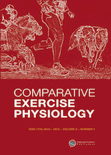
Comparative Exercise Physiology
Scope & Guideline
Enhancing Understanding of Physiology Through Movement
Introduction
Aims and Scopes
- Comparative Physiology:
The journal emphasizes comparative studies that analyze physiological responses to exercise across different species, including humans and various animals such as horses and dogs. - Exercise Interventions and Health Outcomes:
Research often explores the effects of different exercise modalities and interventions on health parameters, recovery, and performance, targeting populations ranging from elite athletes to those with chronic conditions. - Injury Prevention and Rehabilitation:
There is a consistent focus on understanding injury mechanisms and developing effective prevention and rehabilitation strategies through exercise, particularly in equestrian sports and canine athletes. - Nutrition and Supplementation in Exercise:
The journal frequently addresses the role of nutritional supplements and dietary interventions in enhancing performance and recovery from exercise. - Innovative Training Techniques:
Studies often investigate novel training techniques and their physiological impacts, contributing to the development of best practices in exercise training for both humans and animals.
Trending and Emerging
- Integration of Technology in Exercise Science:
There is a growing trend towards the use of technology, such as wearable devices and digital monitoring, to assess physiological responses and improve training outcomes in both human and animal subjects. - Focus on Chronic Conditions and Rehabilitation:
Research addressing the impact of exercise on chronic conditions, such as diabetes, obesity, and post-COVID recovery, is increasingly prevalent, reflecting a societal shift towards understanding the role of exercise in health management. - Psychological Aspects of Exercise:
Emerging studies are beginning to explore the psychological impacts of exercise, including mental health benefits and the psychological responses of athletes, indicating a holistic approach to exercise physiology. - Comparative Studies on Performance Enhancements:
There is a noticeable increase in research examining performance enhancements through various interventions, including supplementation and training techniques, across species, particularly in elite sports contexts. - Youth and Aging Populations in Exercise Research:
There is a rising interest in the effects of exercise on youth and aging populations, addressing specific physiological responses and adaptations unique to these demographics.
Declining or Waning
- Traditional Training Methods:
Research focusing solely on traditional training methods without incorporating modern techniques or interdisciplinary approaches is becoming less prevalent, as the field evolves towards more integrative and innovative practices. - Animal-Specific Studies:
Studies that solely focus on physiological responses in one species, without comparative analysis or broader implications for other species, are declining, as the journal increasingly emphasizes cross-species insights. - Basic Physiological Mechanisms:
While foundational research is still important, there is a noticeable shift towards applied research that translates physiological findings into practical applications, leading to a decrease in purely theoretical studies.
Similar Journals
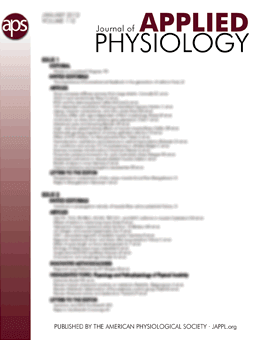
Journal of Applied Physiology
Elevating the Science of Health and Exercise.The Journal of Applied Physiology, established in 1948 and published by the American Physiological Society, stands as a cornerstone in the field of physiology and applied health sciences. With an impact factor reflecting its rigorous scholarly contributions, this peer-reviewed journal ranks in the Q1 category for both Medicine (miscellaneous) and Physiology as of 2023, further emphasizing its prestige and relevance. Researchers and practitioners are drawn to its comprehensive scope, which includes physiological and biomechanical responses relevant to health, exercise, and clinical practices, making it an essential resource for advancements in sports science and medical physiology. Though it does not offer Open Access, the journal provides a wealth of high-quality research, with contributions that are crucial for understanding the complexities of human physiology. Its inclusion in Scopus ranks demonstrates a solid commitment to advancing knowledge in the field, appealing to a diverse audience of researchers, professionals, and students committed to exploring the intricate interactions between physiological processes and applied health.
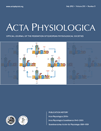
Acta Physiologica
Unveiling the Wonders of Human PhysiologyActa Physiologica is a premier, peer-reviewed journal published by WILEY, dedicated to the dissemination of high-quality research across the field of physiology. With an impressive impact factor reflective of its Q1 category ranking in Physiology for 2023, this journal is a vital resource for researchers, professionals, and students alike, seeking to explore the complexities of biological systems. The journal is indexed with a commendable Scopus rank of #18 out of 193 in its category, placing it within the top 10% of its field, which underscores its influence and citation frequency within the academic community. Acta Physiologica publishes a variety of articles that address fundamental physiological concepts, innovative methodologies, and cross-disciplinary research. With its open access options, the journal ensures that cutting-edge knowledge is readily accessible, fostering an environment of collaboration and advancement in the study of physiology. Spanning from 2006 to 2024, the journal continues to be at the forefront of physiological research and education, encouraging the global sharing of knowledge through its comprehensive content.

Translational Sports Medicine
Bridging Research and Practice in Sports MedicineTranslational Sports Medicine, published by WILEY-HINDAWI, is a distinguished open access journal that has been at the forefront of sports medicine research since its inception in 2018. With an E-ISSN of 2573-8488, this journal aims to bridge the gap between laboratory research and clinical application, fostering the translation of groundbreaking findings into effective sports medicine practices. Situated in the United Kingdom, it has achieved recognition in the academic community, currently holding a Q2 ranking in the fields of Orthopedics and Sports Medicine, with a Scopus ranking of #143 out of 321 in its category. The journal welcomes diverse contributions, making it an essential resource for researchers, professionals, and students eager to advance their understanding of the field. With open access options since 2022, Translational Sports Medicine ensures that high-quality research is accessible to a global audience, thereby enhancing the dissemination of knowledge that can significantly impact sports health and performance.

American Journal of Physiology-Regulatory, Integrative and Comparative Physiology
Exploring the Frontiers of Physiological ScienceThe American Journal of Physiology-Regulatory, Integrative and Comparative Physiology, published by the American Physiological Society, serves as a premier platform for disseminating cutting-edge research in the fields of physiology, emphasizing regulatory, integrative, and comparative studies that advance our understanding of bodily functions. With an ISSN of 0363-6119 and E-ISSN of 1522-1490, this esteemed journal is recognized for its substantial impact, maintaining a 2023 Q2 ranking in both the physiology and medical physiology categories as well as commendable positions in Scopus rankings. The journal has been pivotal since its inception in 1977 and continues to foster interdisciplinary dialogue among researchers, professionals, and students alike, contributing significantly to the evolving landscape of physiological sciences. Although it operates under a traditional subscription model, its commitment to high-quality, peer-reviewed content ensures that it remains an essential resource for anyone engaged in physiological research and education.
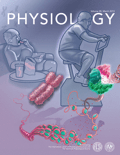
PHYSIOLOGY
Bridging Gaps in Interdisciplinary Physiological StudiesPHYSIOLOGY, published by the American Physiological Society, is a leading peer-reviewed journal that has attained an impressive Q1 ranking in the field of Physiology, underscoring its significance in advancing research and knowledge dissemination. With a robust impact factor reflective of its high-quality publications, this journal serves as a critical platform for researchers and professionals to publish their innovative findings. Offering open access options, PHYSIOLOGY ensures wide accessibility to cutting-edge research that spans various aspects of physiological sciences. The journal's dedicated focus on interdisciplinary research enhances its appeal to a diverse audience, facilitating collaborations and discussions that push the boundaries of our understanding in physiology. Established in 2004 and converging toward 2024, PHYSIOLOGY stands at the forefront of scientific inquiry, making a substantial impact in the fields of biochemistry, genetics, and molecular biology.
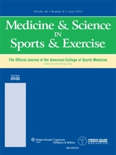
MEDICINE & SCIENCE IN SPORTS & EXERCISE
Exploring the science behind peak athletic performance.MEDICINE & SCIENCE IN SPORTS & EXERCISE is a premier journal published by Lippincott Williams & Wilkins, dedicated to advancing the fields of sports medicine, exercise physiology, orthopedics, and physical therapy. With a significant history dating back to 1969, this journal provides a critical platform for disseminating cutting-edge research and clinical insights that shape contemporary sports science. Recognized for its rigorous peer-review standards, it boasts an impressive impact factor and ranks in the top quartile (Q1) across pivotal categories including Orthopedics and Sports Medicine, Physical Therapy, and Rehabilitation. Researchers and healthcare professionals will find it an invaluable resource for the latest findings and trends that inform practice and enhance athletic performance. The journal is available in both print and digital formats, ensuring accessibility for its audience worldwide. By fostering a rich dialogue among scientists, practitioners, and students, MEDICINE & SCIENCE IN SPORTS & EXERCISE solidifies its importance in the evolving landscape of sports health and exercise research.

Applied Physiology Nutrition and Metabolism
Transforming Knowledge into Healthier LivesApplied Physiology, Nutrition, and Metabolism is a renowned journal published by Canadian Science Publishing, focusing on the interdisciplinary fields of physiology, nutrition, and metabolic science. Since its inception in 2006, this journal has established itself as a leading source of cutting-edge research, providing a platform for innovative studies that impact clinical practices, fitness, and health guidelines. With an impressive recognition within the academic community, it boasts a Q1 rank in Nutrition and Dietetics and Q2 ranks in Endocrinology, Diabetes and Metabolism, and Physiology categories in 2023, highlighting its significance in advancing knowledge in these critical areas. The journal offers open access options, promoting broader dissemination of research findings to enhance global health outcomes. Situated in Canada, Applied Physiology, Nutrition, and Metabolism aims to integrate science and practical applications, making it essential reading for researchers, clinicians, and students dedicated to exploring the dynamic interactions between nutrition, physical activity, and metabolic health.

INTERNATIONAL JOURNAL OF SPORT NUTRITION AND EXERCISE METABOLISM
Advancing Athletic Excellence with Evidence-Based InsightsINTERNATIONAL JOURNAL OF SPORT NUTRITION AND EXERCISE METABOLISM, published by Human Kinetics, is a leading academic journal dedicated to the interdisciplinary fields of sports nutrition and exercise metabolism. With ISSN 1526-484X and E-ISSN 1543-2742, the journal provides a critical platform for researchers and practitioners to explore the intricate relationships between nutritional strategies, exercise physiology, and performance outcomes. Boasting a commendable impact factor and ranking in the Q2 category across multiple disciplines, including Medicine (miscellaneous), Nutrition and Dietetics, Orthopedics and Sports Medicine, and Sports Science, the journal is recognized for its contribution to advancing knowledge in these vital areas. Researchers are encouraged to submit their findings and engage with cutting-edge studies spanning from 1996 to the present. While the journal currently does not offer open access, its reputation as a peer-reviewed resource ensures high-quality evidence for both academic study and practical application. For those invested in optimizing athletic performance through nutritional insights, INTERNATIONAL JOURNAL OF SPORT NUTRITION AND EXERCISE METABOLISM is an invaluable resource.

Acta Kinesiologica
Pioneering excellence in kinesiology research.Acta Kinesiologica is a distinguished journal dedicated to advancing the fields of kinesiology and health sciences. Published by the DRUSTVO PEDAGOGA TJELESNE & ZDRAVSTVENE KULTURE, this journal serves as a vital platform for researchers, professionals, and students to disseminate and engage with innovative findings in physical education, exercise science, and health promotion. With the ISSN 1840-2976 and E-ISSN 1840-3700, Acta Kinesiologica highlights contemporary research methodologies and interdisciplinary approaches that aim to enhance human movement and well-being. Although currently not an open-access journal, it is recognized for its commitment to quality and scholarly excellence. Researchers from around the globe benefit from its rigorous peer-review process, which ensures that only the most relevant and impactful studies are published. As the journal continues to evolve, it remains an essential resource for those seeking to expand their knowledge and contribute meaningfully to the scientific community in kinesiology and related disciplines.

MEDICINA DELLO SPORT
Pioneering Research in Orthopedics and Physical TherapyMEDICINA DELLO SPORT is a distinguished journal published by EDIZIONI MINERVA MEDICA, dedicated to advancing knowledge in orthopedics, sports medicine, and physical therapy. With its ISSN 0025-7826 and E-ISSN 1827-1863, this journal has been a pivotal platform for scholarly research since its inception in 1965, enhancing the understanding of various aspects of sports health and rehabilitation. Although it currently does not offer open access, it maintains a reputable stance in academic publishing, ranking in Q3 for both Orthopedics and Sports Medicine as well as Physical Therapy, Sports Therapy, and Rehabilitation, according to the latest metrics. With its inclusion in Scopus and a strong presence in important health professions, MEDICINA DELLO SPORT is crucial for researchers, professionals, and students aiming to explore and contribute to the evolving field of sports medicine and therapies. It is published from its headquarters located at CORSO BRAMANTE 83-85 INT JOURNALS DEPT., 10126 TURIN, ITALY, ensuring a European perspective in global health discussions.